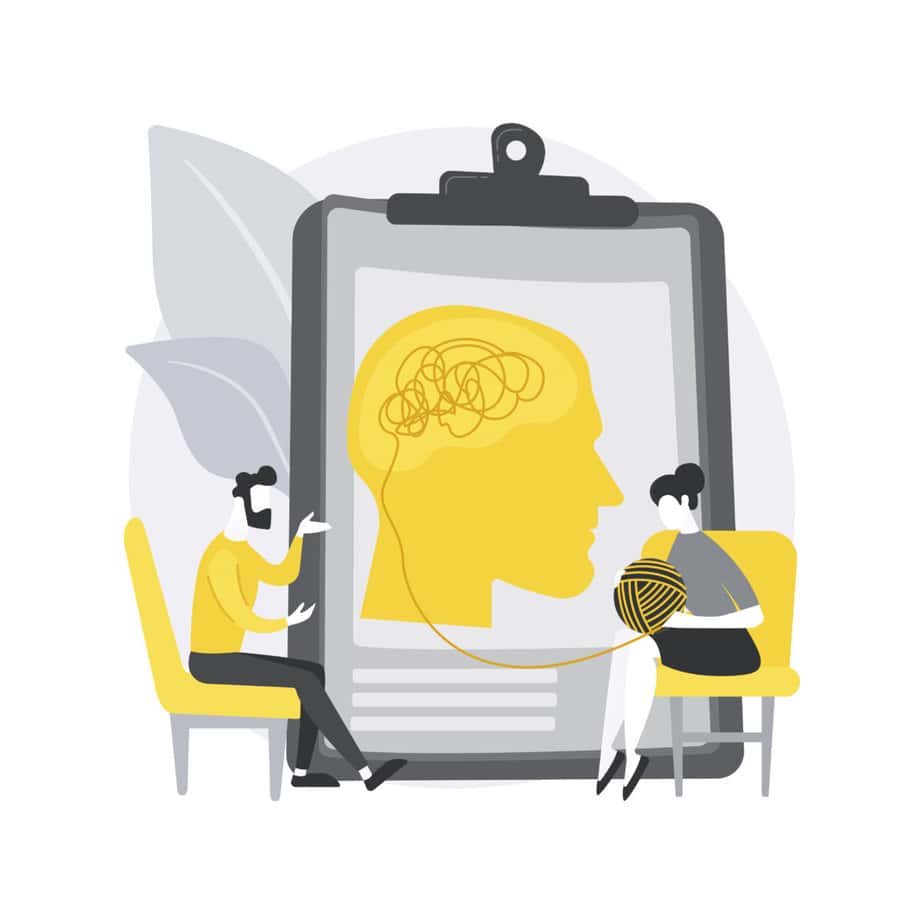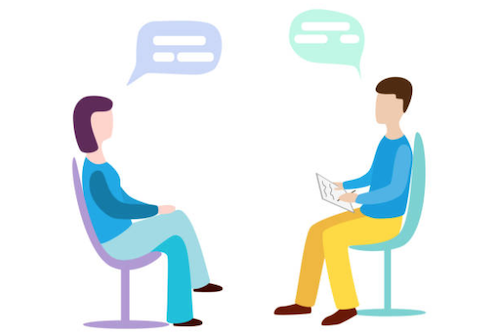Your Guide to Choosing the Perfect Life Coach
Are you feeling stuck in a personal or professional life? Like you are going around in circles but not getting anywhere? We’ve all been there. It’s a part of life.
But what if I told you it doesn’t have to be? What if you could have someone by your side, guiding you, supporting you, and cheering you on, as you navigate through the maze of life? That’s where a life coach comes in.
In this guide, we’ll explore the world of life coaching and how it can be the game-changer you’ve been waiting for. Along the way, you will discover the incredible benefits of holistic coaching, gain insights into the different specializations, and learn the secrets to finding the perfect life coach for you. You will gain valuable insights into how life coaching can guide you on your journey to personal and professional fulfilment and unlock the doors to a happier and more meaningful life.
So buckle up as we dive into the transformative power of life coaching and how it can unlock the doors to a happier, more meaningful life. Let’s explore this together, shall we?
Key Takeaways
- Life coaches inspire, support, and guide their clients towards personal and professional growth offering a new perspective that leads to positive change.
- The right life coach will help you identify your strengths, set goals and create tailored action plans to create the life you’ve always wanted.
- A life coach will consider your feelings, needs and circumstances to create a tailored plan that fits in with your lifestyle and personality.
- Online life coaching sessions offer convenience, flexibility and easy access to guidance and tools.
- Life coaches and therapists play different roles. While therapists are equipped to diagnose and treat mental health conditions, life coaches inspire and guide their clients towards improving their overall well-being
What is Life Coaching

Life coaching is a powerful approach that empowers you to gain clarity and set meaningful life-changing objectives. With the guidance of a life coach, you can gain insight into yourself, create a plan to achieve your goals and take your well-being to a whole new level.
While life coaching isn’t a replacement for therapy, it can be an excellent complement to the work of mental health professionals, offering support in both personal and professional life.
The Role of a Life Coach
A life coach is a professional who guides clients through their personal development journey, helping them identify and achieve their goals, while providing support and accountability. The best life coaches are capable of empathy, active listening, and problem-solving skills.
Life coaches support clients in various aspects of their lives, helping each person unlock their full potential through personal and professional development.
It’s important to recognise that life coaching is not a mental health treatment and that coaches neither treat mental health conditions nor prescribe medication.
The role of an experienced life coach is to:
- identify behaviours that need to be changed so that goals can be achieved
- uncover the root cause of certain negative patterns
- examine past experiences to understand present behaviours
- guide conversations and create opportunities for meaningful insights
- provide guidance, support, and strategies to achieve specific goals
- empower to take control and create positive changes
- address various aspects of family life, personal growth, and professional lives
Working side by side with clients, life coaches help them connect to their inner-selves and find the inspiration within. This is a vastly different approach from the one where a client relies on their therapist for constant emotional support and motivation. This approach is based on the idea that people already know what’s best for them, so life coaches simply help clients discover the answers they already have.
So, now that you know what life coaches do, let’s take a look at how you can find a good coach that understands your feelings, needs and circumstances.
Choosing the Right Life Coach for You
When selecting a life coach, aim to evaluate the coach’s proficiency and experience in their particular area of interest.
When choosing a life coach, consider:
- rapport
- expertise
- availability
Establishing rapport with a coach is essential for obtaining the maximum benefit from coaching sessions, as it leads to a strong foundation of trust and understanding between you and your life coach.
During your first session, ask yourself:
- Do you feel heard and understood?
- Does the coach take time to listen and understand your perspective and current circumstances?
- Is the coach self-aware and flexible to adapt to your style, personality and way of thinking?
- Are they someone you feel you can rely on during difficult periods?
- Are they looking to convert potential clients or are they truly there for you?
- Do you want to have virtual sessions or do you prefer an in-person experience?
- Have they dealt with similar situations?
- Can they understand you fully?
- Do they present you with all possible options, even if it means seeing another specialist?
- Are they open to recognising their limitations?
- Do they focus on converting you into a long-term client or are they prioritising the client’s needs and objectives above all else?
- Are you receiving a tailored solution to your particular personality and situation or generic advice?
A good coach will be able to recognise their limitation with particular mental health issues or physiological issues (e.g. clinical depression, mood disorders, etc.) and will have no problem referring you to other professionals who are experts in their particular fields.
Consider the expertise of various mental health professionals to ensure you receive the best support for your mental health needs.
A face-to-face interaction will help you see how you feel in their presence and is an opportunity to check if you trust them and feel comfortable to open up and be vulnerable. Building a strong relationship with a life coach is an essential part of your success.
Benefits of Having a Life Coach

Life coaches provide guidance and support through tools and strategies, to help their clients in many ways. Some of the benefits include:
- create the right environment for a healthier and more fulfilling life
- create a safe space for self-reflection
- increase self-confidence
- increase self-awareness and understanding of the world around
- break through limiting beliefs
- manage the challenges and overcome obstacles
- improve communication skills
- create more fulfilling interpersonal relationships
- gain clarity and insight into your life
- reduce doubts about your future
- identify and address areas of your life that need improvement
- learn to consciously manage your time and energy
- set boundaries
- improve overall well-being
- set and achieve personal and professional goals
- find a work-life balance
- find the right career path, advance your career or find a more fulfilling one
Benefits of Online Coaching
Online coaching offers a similar experience to in-person sessions with the added benefit of remote access. Instead of meeting in person, you can interact with your life coach via video calls or phone calls. Remote coaching sessions simplify the integration of life coaching into your routine, offering many benefits, such as:
- access the right person from the worldwide pool of professional coaches
- find the perfect coach to suit your specific needs and preferences
- work with exceptional coaches across various time zones and geographical locations
- access coaching resources at your fingertips
- schedule sessions at convenient times
- connect with your life coach from anywhere in the world
Without the need to physically travel to see your coach, this experience becomes more cost-effective, you are saving time travelling and increasing privacy by reducing your exposure to the outside world.
Tips for Getting the Most Out of Life Coaching:
- Finding the right life coach through assessing credentials and experience
- Building rapport and trust with the coach
- Engage in open and honest communication with your coach.
- Actively participate in coaching sessions and be willing to share your thoughts and feelings.
- Develop a strong connection with your coach by being open to their guidance and feedback. By following these steps, you can build a solid foundation for lasting change.
- Taking the time to evaluate potential coaches and engage in coaching sessions
- Making an informed decision about the right life coach for you
- Reflecting if they are the right fit for your unique needs and goals.
Types of Life Coaches
Life coaches can be categorized as generalists and specialists. A generalist life coach possesses knowledge and capabilities across a broad spectrum, whereas a specialist life coach concentrates on a particular aspect of a person’s life.
Life coaching encompasses a variety of specialisations, including:
- Career Coaching
- Relationship Coaching
- Transformational Coaching
- Personal Development
- Health and Wellness
- Spiritual Coaching
By focusing on specific areas of expertise, life coaches can provide targeted support and guidance to clients seeking help or growth in various aspects of their lives.
You can aim to choose a life coach that fits your own needs and goals, making your coaching experience both personal and effective.
Life Coaching vs. Therapy
Coaches and therapists offer different but complementary approaches to self-improvement.
Life coaching and therapy are two similar professions that have the same goals but vary in their approach.
Therapy concentrates on mental health problems and healing, whereas life coaches help their clients to connect with themselves, identify their needs, set goals and make plans to achieve these goals while managing expectations and disappointments along the way.
These two professions can complement each other very well, so when people seek coaching they often attend therapy as well. For example, you may see a counsellor to talk about your thoughts and feelings and at the same time see a health and wellness professional who can help you take care of your physical health through nutrition and exercise advice.
Unlike therapists who are required to have a degree and be licensed in a related field, life coaches are not required to have formal qualifications or licensing. That said, to be a good therapist or a coach, a person should have the knowledge and expertise to help clients achieve their goals.
While some life coaches undergo certification programs accredited by the International Coaching Federation or similar certifying body, others derive their knowledge through self-education and real-life experiences.
It’s worth noting that certified coaches are not licensed mental health professionals and do not treat mental health conditions, whereas a licensed therapist must fulfil a set of educational and licensing requirements to provide mental health care treatment.
While coaching can complement mental health treatment, it is not a replacement for therapy. For those experiencing symptoms of mental health conditions, it is recommended to seek professional help from a licensed mental health professional, who will be better equipped to assist in their mental health journey.
If you need to work through mental health challenges and heal from past traumas, seeing licensed mental health professionals is probably a good call. After you’ve addressed mental health issues, consider getting a life coach to help you create a personalised strategy to achieve your goals and set sail on your path to fulfilment.
A good coach as well as a good licensed therapist should be comfortable bringing each other’s expertise into a client’s journey if and when necessary.
The coaching industry has evolved over the years, with many life coaches opting for life coach certifications accredited by the International Coaching Federation to establish their expertise and credibility. The International Coaching Federation acknowledges the significance of active listening, self-awareness, and problem-solving abilities in cultivating positive changes in clients’ lives.
Many life coaches undergo training programs to develop the skills necessary to help their clients build the life they’ve always wanted.
It’s worth noting that while training programs and certification programs can provide credibility, the only way to know if a particular life coach is the right fit for you, is to have an introductory session.
Conclusion
Today, we’ve explored life coaching, its unique benefits, and the different specializations available.
Professional coaches come from diverse backgrounds, with some focusing on specific areas like career coaching, business coaching, or relationship coaching.
Whether you’re seeking career advancement, personal breakthroughs, or a healthier work-life balance, life coaching offers the tools, support, and guidance needed to achieve your goals and live a more fulfilling life.
We’ve discussed what is life coaching, its benefits and specialisations, the role of life coaches and how to find the perfect life coach for you.
Understanding the key differences between life coaching and therapy will help you make informed decisions about the type of support you need and discover the perfect support for your unique needs.
As a professional life coach, I believe in a holistic approach to well-being, which entails looking at one’s life from a bird’s view and diving in to explore each area in more detail.
Bringing together a holistic approach to life coaching coupled with the convenience of remote sessions, I help my clients improve their overall well-being and create more balanced and fulfilling lives.
If this resonates with you, feel free to reach out and share what’s on your mind. I will carefully consider everything you share to give you the best advice and will let you know if and how I can help.
Frequently Asked Questions
What exactly does a life coach do?
A life coach provides support and guidance, helping people identify their strengths and create meaningful change in their lives by achieving their goals. Life coaches work with clients to help them understand the necessary steps to create positive change in their lives and improve overall well-being.
What is a life coach vs a therapist?
A life coach helps you identify problematic behaviours to modify your current situation, while a therapist analyzes your past to gain insight into why certain patterns occur. Life coaches focus on “how” to work towards a goal while therapists concentrate on “why” certain behaviours exist. Take action now and find the right coach or therapist for you!
What can I expect to gain from life coaching?
Life coaching can help you recognize and unlock your potential, identify your strengths and weaknesses and figure out what’s holding you back. A good life coach will work with you to develop a plan to achieve your goals. Two or three life coaching sessions are usually enough to get an idea of whether a life coach understands your needs. If you feel comfortable with a particular life coach, consider having regular sessions where you can have ample time to address your doubts, identify and change bad habits and get started with holistic life planning.
What is the average cost of a life coach?
On average, life coaches charge $75 to $200 per hour with an average cost of $120 per hour. Many life coaches offer packages such as four 30-minute sessions for $300 a month. Program packages of eight 90-minute sessions can cost up to $2,000. A life coach generally have their own business and sets their prices. So if you need help but can’t match the asking price, no harm in reaching out to a life coach to see if they can offer you a special deal.
What is positive psychology?
Positive psychology is an exciting and relatively new field that focuses on enhancing the human experience. Rather than focusing on mental illness or dysfunction, trained life coaches apply positive psychology to help clients make their lives more fulfilling.





